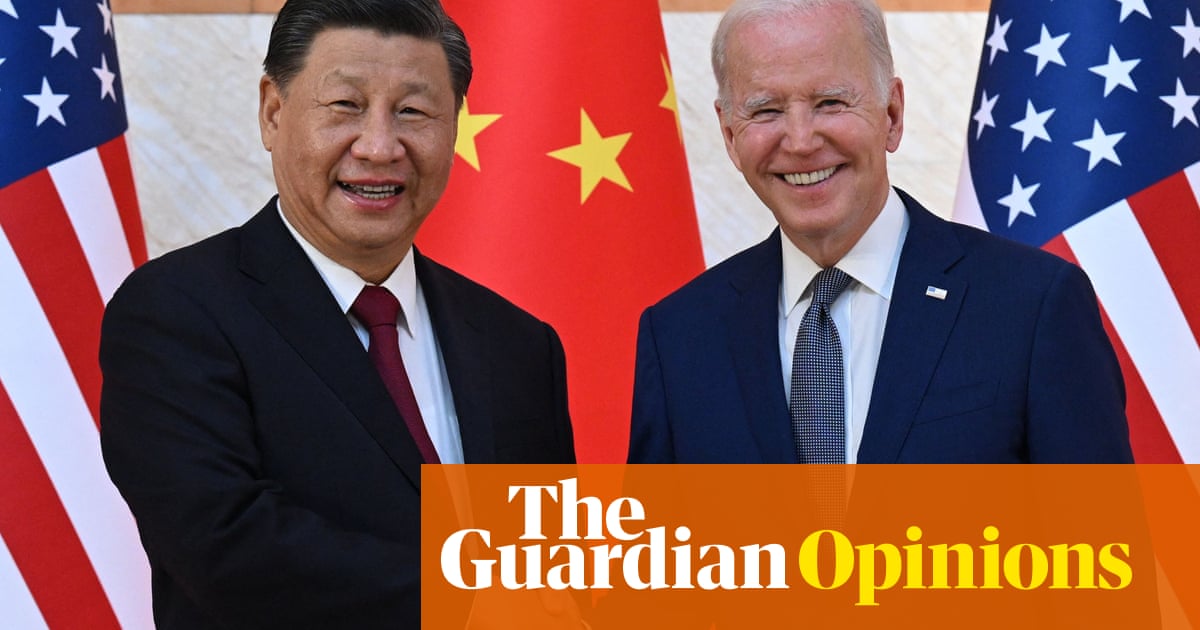
As the leaders of the world’s two superpowers, the US and China, hold a summit meeting in San Francisco, many observers hark back to grand bipolar simplicities. A new cold war! The west versus the rest! Democracy versus autocracy! Let’s woo the global south! But the great Swiss historian Jacob Burckhardt warned us always to beware of the terribles simplificateurs, the frightful simplifiers. The beginning of wisdom is to understand that we now live in a world fragmented between multiple great and middle powers who do not divide simply into two camps.
The results of an ambitious round of global polling, released today, help us to understand this new world disorder. Conducted for the European Council on Foreign Relations and an Oxford University research project on Europe in a Changing World that I co-direct, this is the second time we have surveyed what we call in shorthand the Citrus countries: China, India, Turkey, Russia and the United States. This autumn we added to them five other major non-European countries – Saudi Arabia, Indonesia, South Africa, Brazil and South Korea – as well as covering 11 European countries.
Here are a few findings to keep you awake at night. More than half of those we asked in China, Saudi Arabia and Turkey said the United States was at war with Russia. Clear majorities in those countries – as well as in India and Indonesia – believe Russia will win the war in Ukraine within the next five years. More than half the respondents in China, Saudi Arabia and Russia said they thought it was likely that the EU would fall apart in the next 20 years. That was also the view of 45% in Turkey (a recognised candidate for membership of this putatively disintegrating union) and, rather shockingly, of no less than one-third of the Europeans we asked. Interestingly, there’s a correlation between a belief that the EU is likely to fall apart and a belief that Russia is likely to win the war in Ukraine. Put all this together and you see how much the credibility of Europe and the United States is at stake in Ukraine.
Our polling was completed before the outbreak of another war, that between Israel and Hamas, which further exacerbates the new world disorder, but we did ask how likely it was that, within the next five years, the United States and China would enter into direct military confrontation over Taiwan. Fifty-two per cent of those asked in China and 39% in the US said it was likely. Such prophecies can be self-fulfilling.
One other thing to disturb your sleep. Among countries that don’t already have nuclear weapons, 62% of those asked in Saudi Arabia, 56% in South Korea, 48% in Turkey and 41% in South Africa favour their countries getting access to them.
There’s some good news for the west too. Europe and the US win the soft power beauty contest hands down. Asked where you would like to live if not in your own country, clear majorities in Brazil, Saudi Arabia, South Africa, South Korea and Turkey indicated Europe or the United States. Only in South Africa did the proportion of respondents choosing China exceed 10% – and almost nobody wants to live in Russia. But the west’s attractions extend beyond that. With the exception of Russia, people in most of these countries choose “the United States and its partners” over “China and its partners” on both human rights and internet regulation. They also say that Russia is not part of Europe “when it comes to its current political values”, clearly indicating that they associate Europe with a set of political values.
They are distinctly underwhelmed by European hard power, but impressed by that of the US. On trade, China is the favoured partner, but almost all of these countries prefer the United States over China when it comes to “security cooperation”. Then we asked a more challenging question: if your country was forced to choose between being part of an American or a Chinese bloc of countries, which would you prefer it to end up in? The US wins hands down. If push came to shove, people in Brazil, India, Saudi Arabia, South Africa, South Korea and Turkey say they would choose a US-led bloc. In Indonesia, it’s a closer call, but on this, as on much else, the only clear exception is Russia.
So, the rest prefer the west? Well, maybe if forced to choose. But what really emerges from our two rounds of polling, taken together with other evidence, is that most of these countries think that they can choose not to choose. They can have closer economic relations with China, security cooperation with the US and simultaneously enjoy all the delights that soft power Europe has to offer. A world with many competing powers gives them the chance to mix and match.
A multipolar world, in this form, enables not multilateralism, nor even non-alignment as it was understood in the cold war, but rather what the Indian leader Narendra Modi has called multialignment. A great power among other great powers, you pursue your own national interests wherever they lead you, aligning with different partners on different issues. I and my co-authors, Ivan Krastev and Mark Leonard, characterise this as an à la carte world, contrasting it with the old set menus of the cold war, to which the US president, Joe Biden, harks back with his binary framing of democracy versus autocracy.
Many people have enjoyed (and a few friendships been broken over) the board game Diplomacy, in which you play as early-20th-century European great powers forging sacred, perpetual alliances – and then treacherously switching sides, leaving your best friend in the lurch. But in the early 21st century, the real-life Diplomacy covers the entire world – and it’s now a four-dimensional game. You can be aligned with the US on security while cosying up to Russia on energy and China on trade. It’s not just major extra-European powers who are into this game. Aleksandar Vučić’s Serbia plays it too, and Hungary’s Viktor Orbán is the ultimate cynic at the board.
The lesson for the west is not that we should abandon our values. It’s that we should get a lot smarter, seeing the world as it is, not as we wish it to be. Avoid all those simplistic binary framings and instead develop targeted strategies for particular great and middle powers, such as India, South Africa or Turkey. You’ll never win unless you understand the new rules of the game.
Timothy Garton Ash is a Guardian columnist












